Product
How to Connect Pipedrive to Google Sheets
Integrate Pipedrive with Google Sheets and learn how to connect, automate, and streamline your data workflow effortlessly.
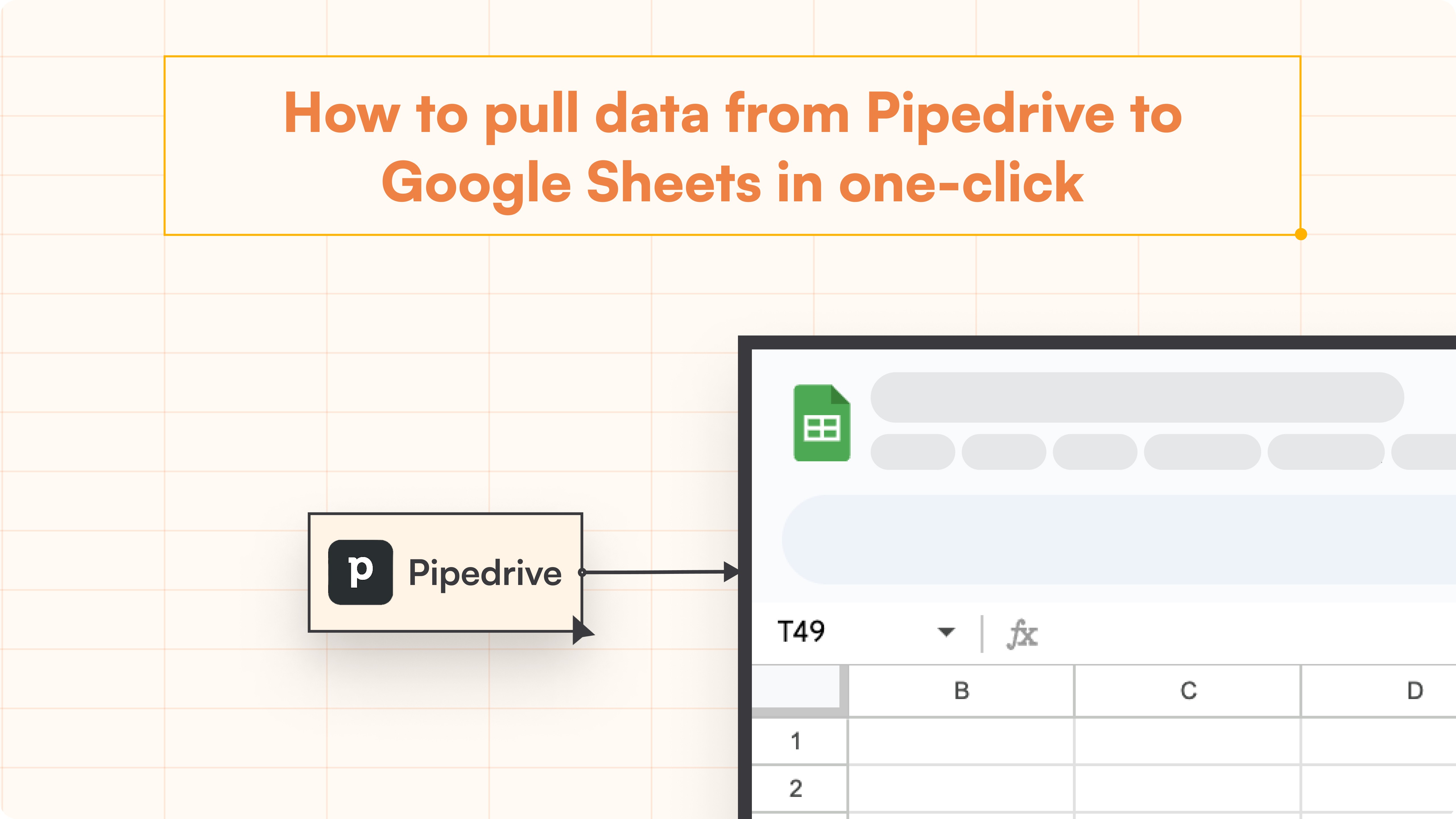


Pipedrive is a powerful sales management tool designed to help sales teams manage leads, track customer interactions, and automate sales processes.
By integrating Pipedrive with Google Sheets, you can streamline your data management, create insightful reports, and make data-driven decisions with ease. This integration allows you to seamlessly manage and analyze your sales data directly in Google Sheets, leveraging the powerful features of both platforms.
This blog will compare different connection methods, highlighting why Superjoin is often the best choice for many users.
Best Ways to Connect Pipedrive to Google Sheets
Method 1: Using Superjoin
Superjoin provides the fastest and easiest way to connect Pipedrive to Google Sheets without any technical know-how or complex setup processes. Here’s how it works:
Step 1: Click Extensions from the Google Sheets menu. Select Add-ons and choose to Get Add-ons. This will bring you to the Google Workspace Marketplace.
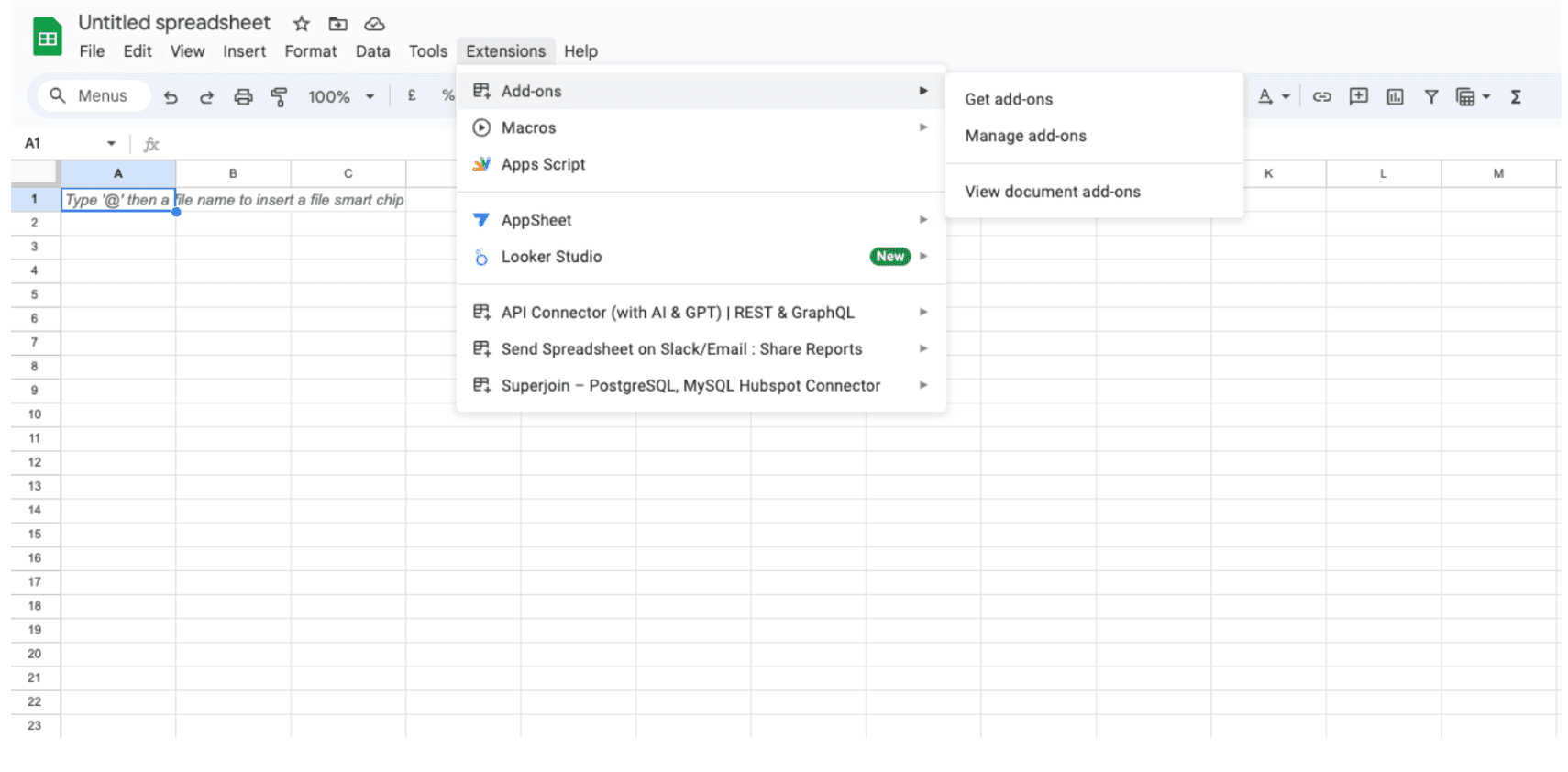
Step 2: Look for Superjoin in the Google Marketplace pop-up window and install the app by following the prompts.
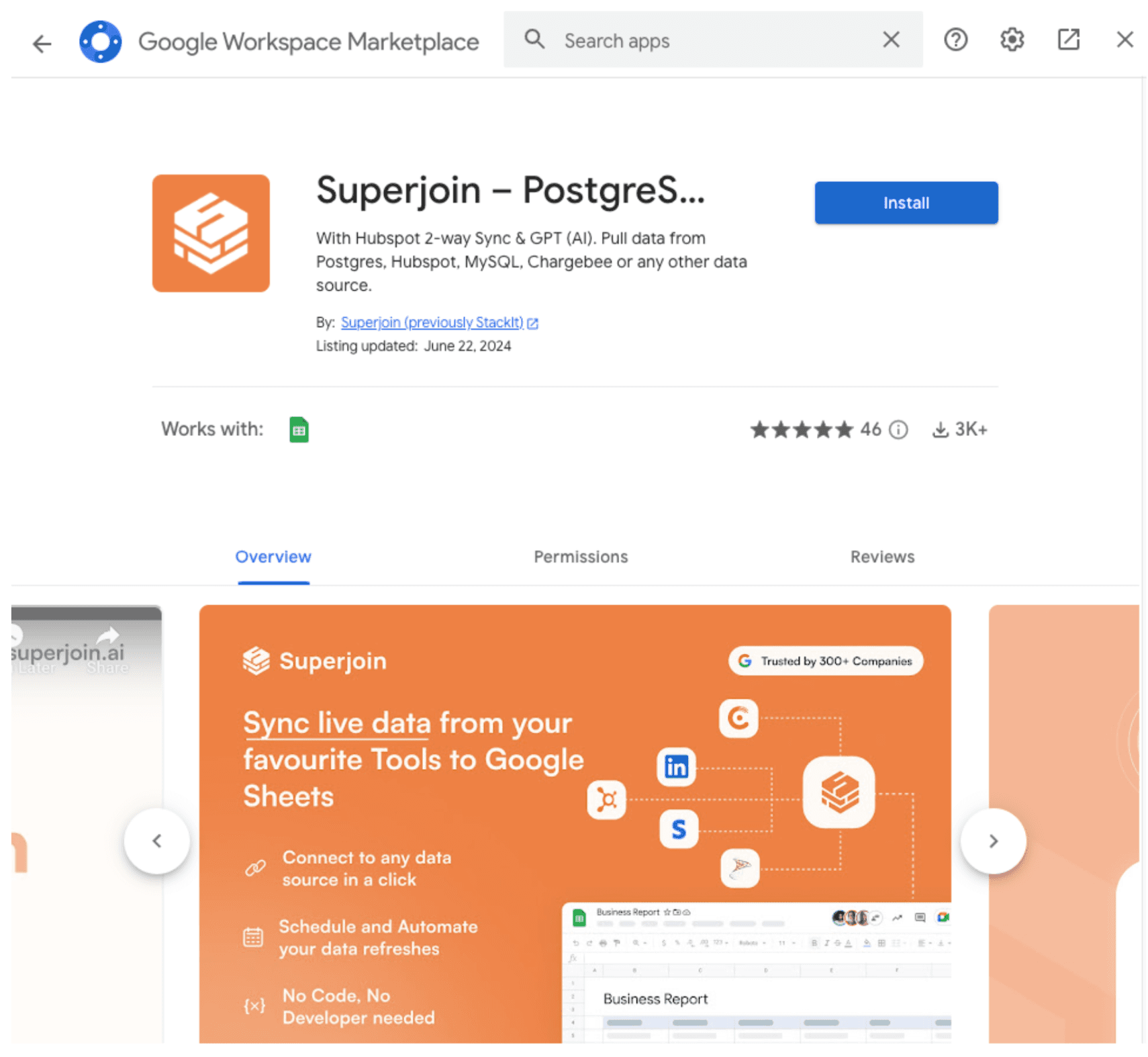
Step 3: Navigate back to the Extensions menu tab and launch Superjoin from there. You should see Superjoin running as a Google Sheets side panel on the right side of your screen.
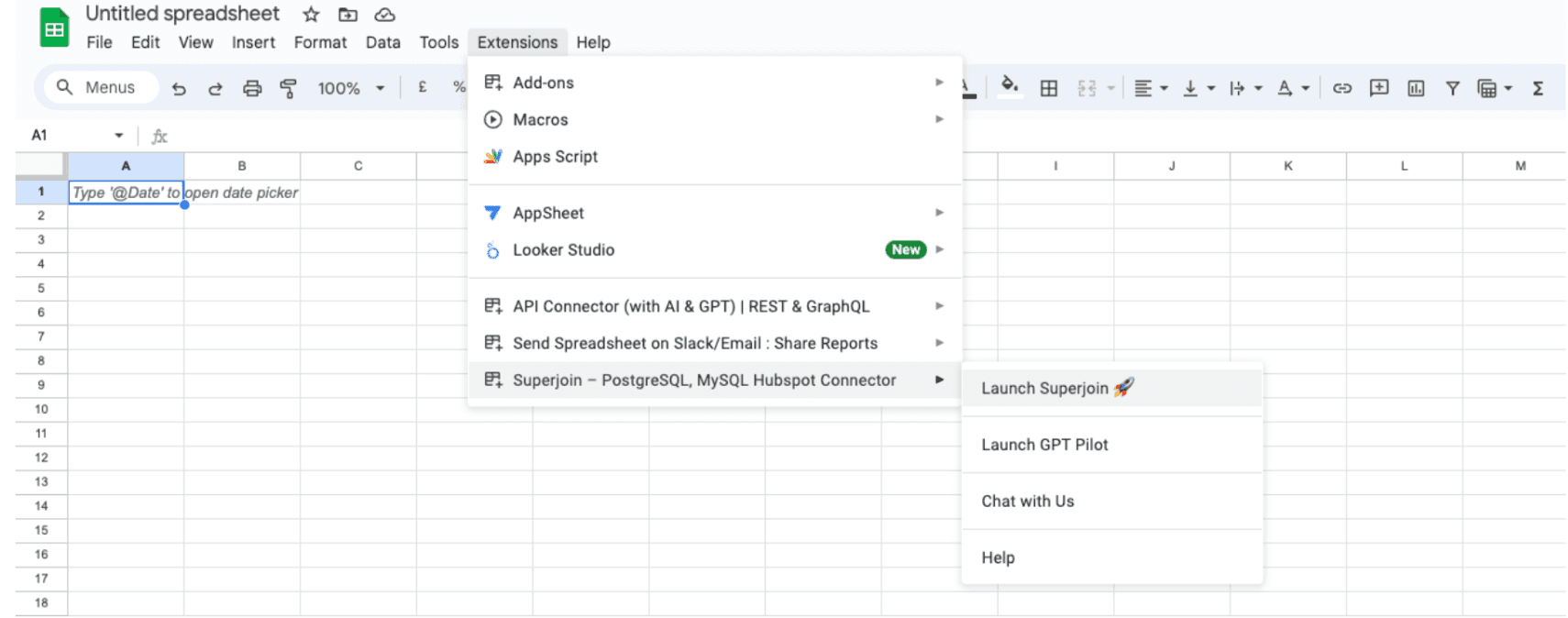
Step 4: From Sources, select Pipedrive from the list.
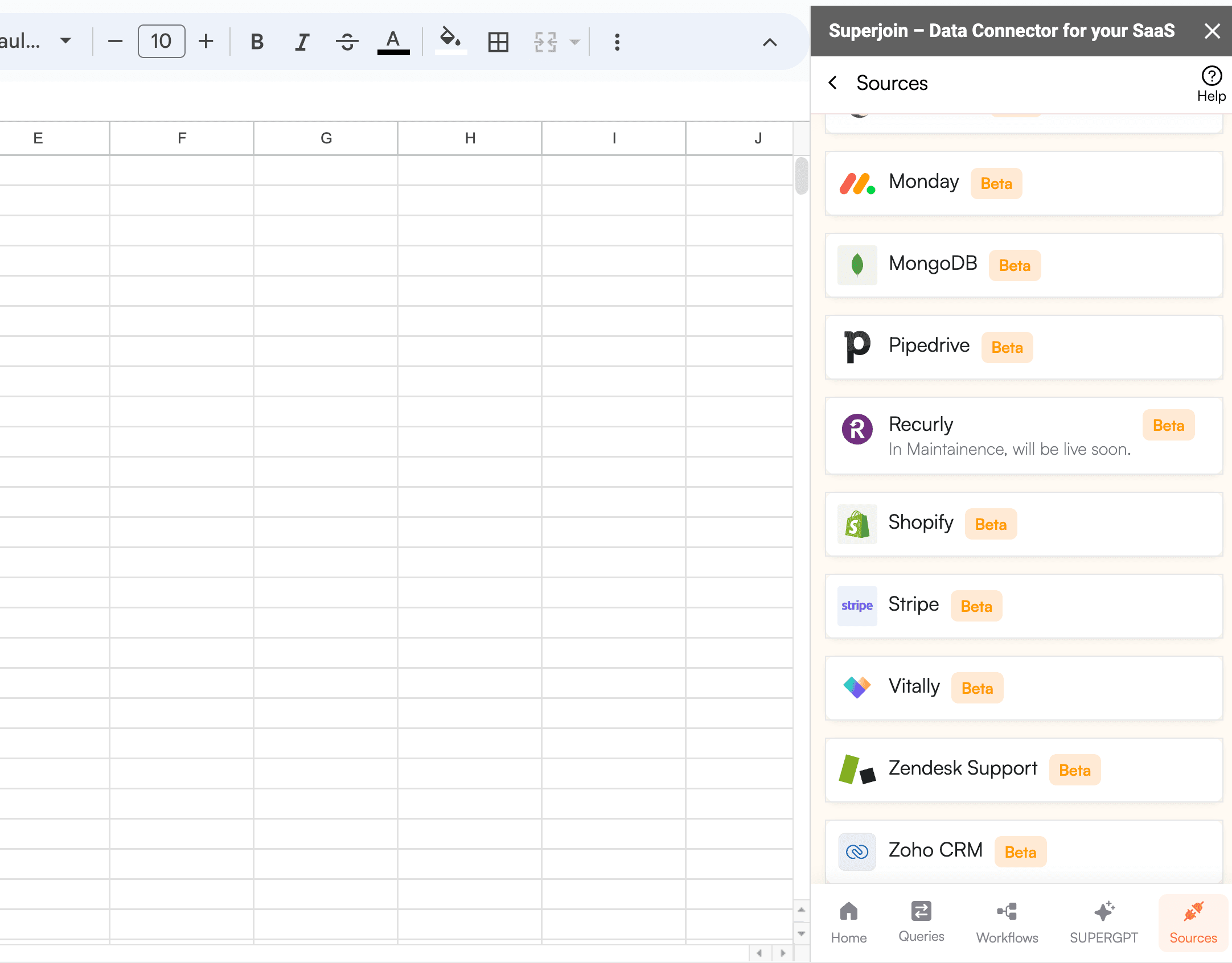
Step 5: After selecting Pipedrive, authorize Superjoin to access your account by entering your API Token and Start Date.
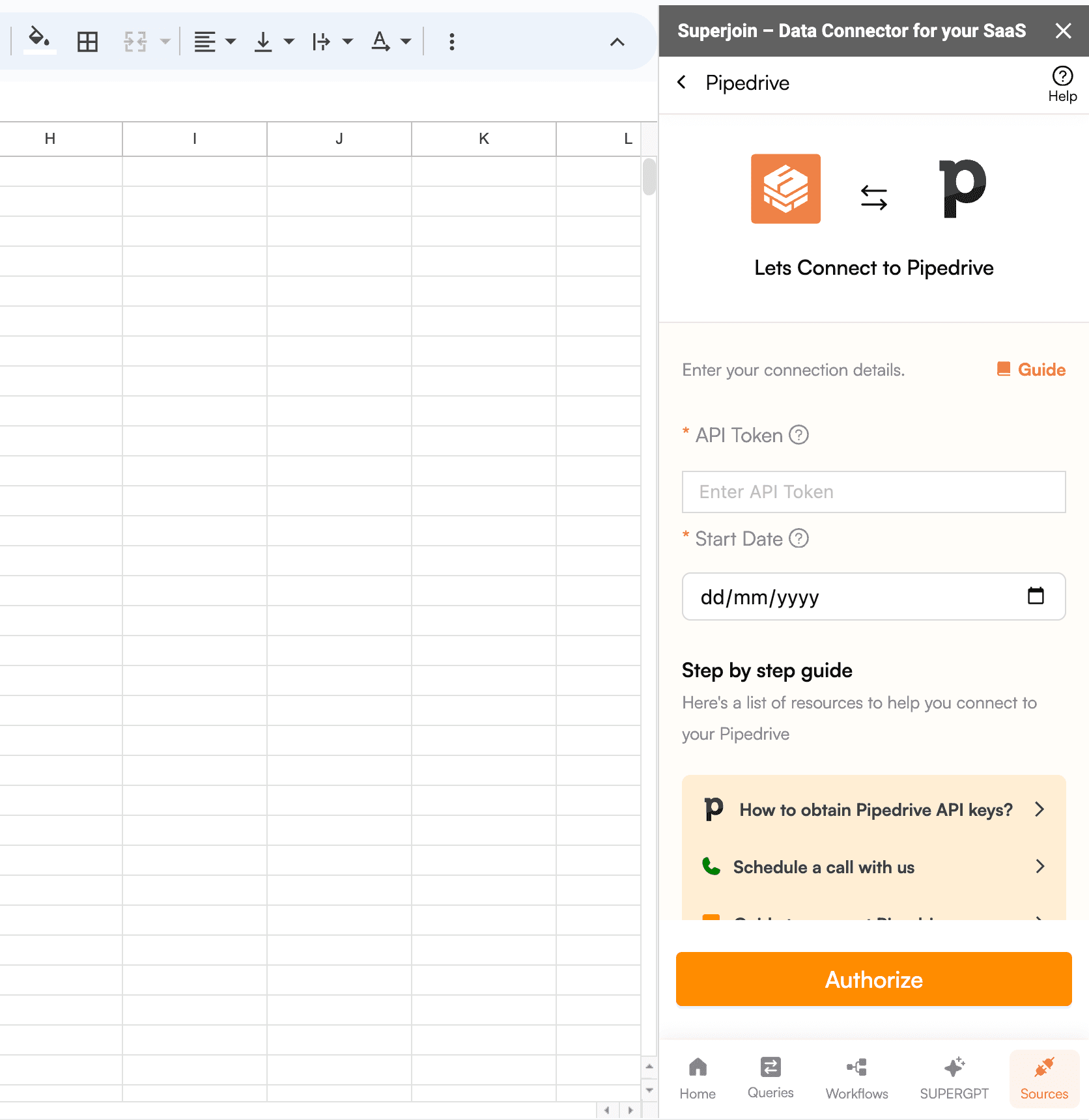
Step 6: After authorization, you'll see a list of your Pipedrive properties in the Data Preview Window.
Choose your property and view, then click "Import" to bring the data into Google Sheets.
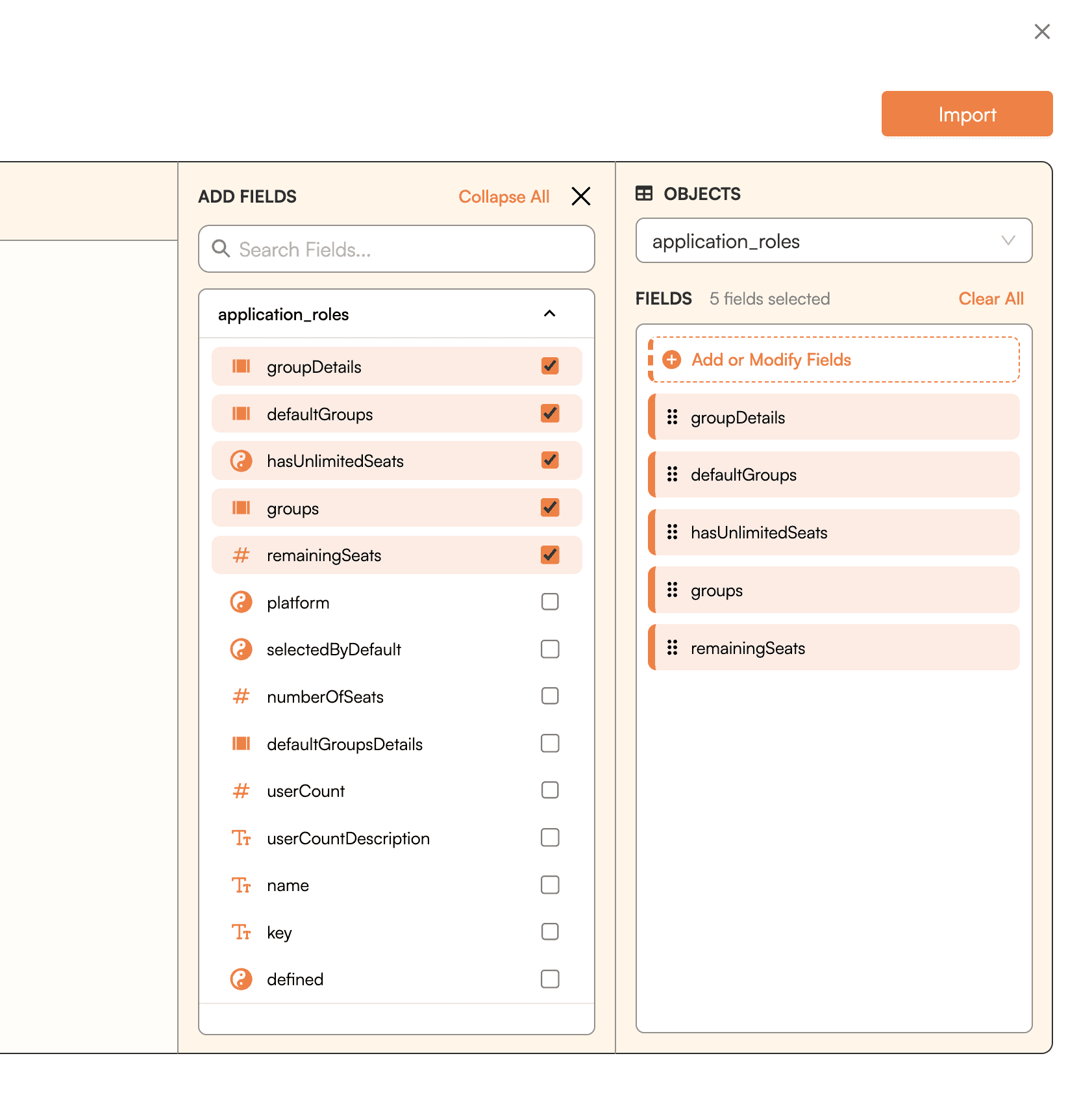
Step 7: Superjoin lets you refresh your imported data instantly with one click or set it to auto-refresh on a pre-set schedule. This way, you won't need to manually update your Pipedrive data in Google Sheets to reflect changes from the source.
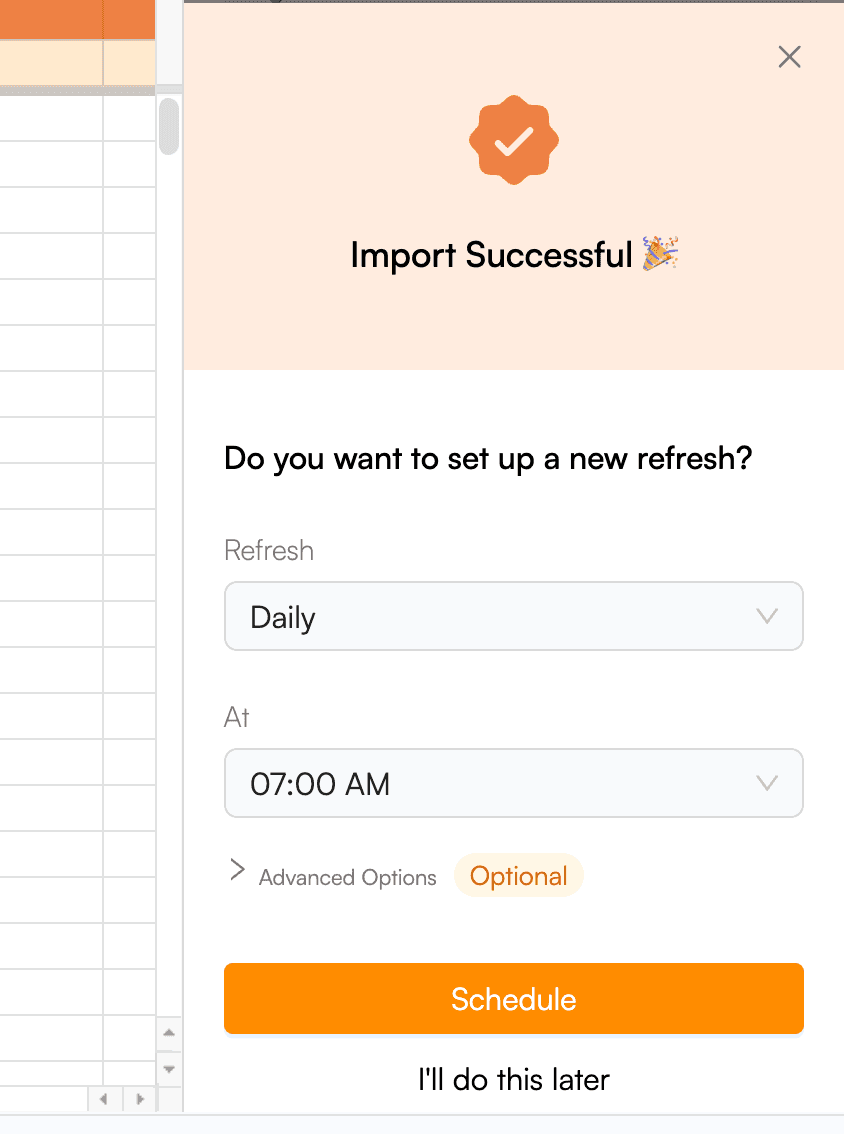
Voila, you've successfully imported your Pipedrive data to Google Sheets using Superjoin!
It is particularly suitable for users looking for a Pipedrive to Google Sheets free tool, as Superjoin offers a free tier.
Method 2: Using Zapier
Third-party automation tools like Zapier can also be used to sync Pipedrive with Google Sheets. Zapier allows you to create Zaps (automated workflows) that can transfer data between the two services.
Steps:
Sign up for a Zapier account and create a new Zap.
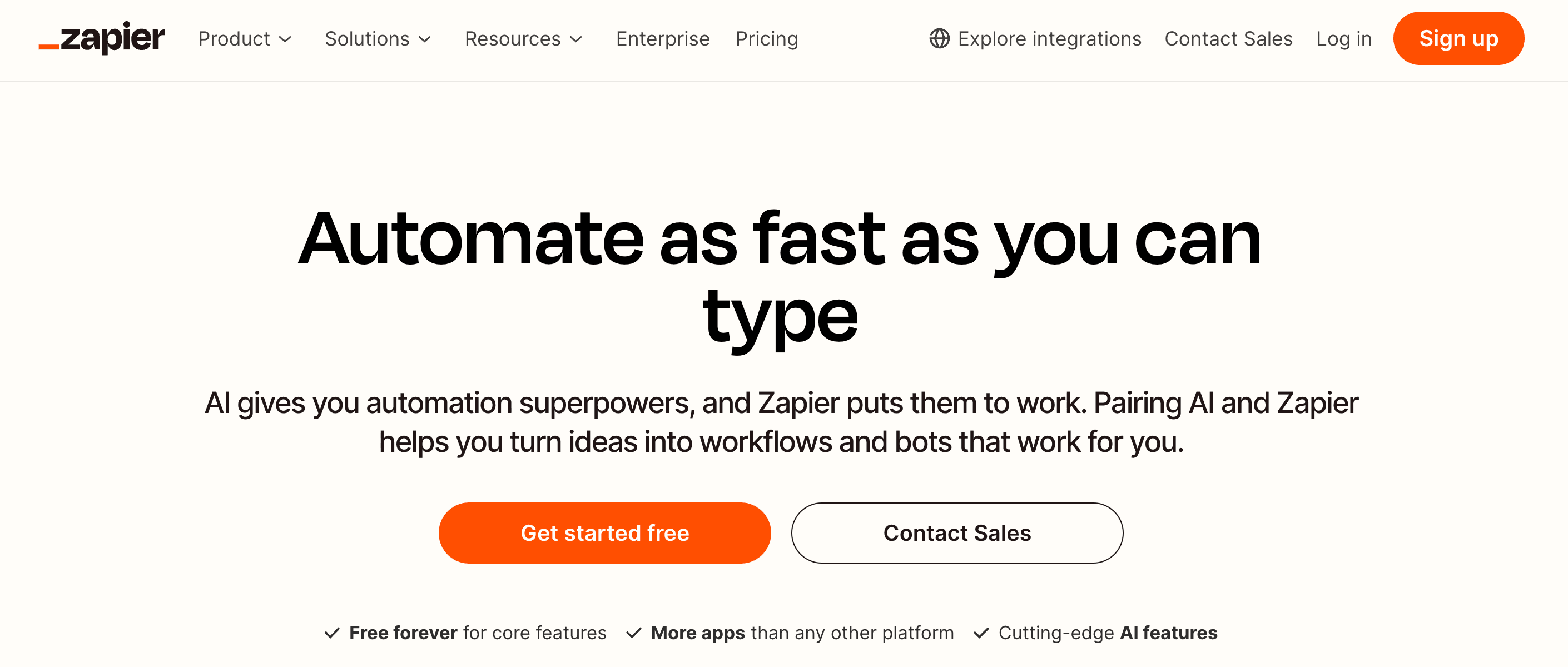
Select Pipedrive as the trigger app and set up the trigger (e.g., new deal in Pipedrive).
Choose Google Sheets as the action app and configure the action (e.g., create new row in Google Sheets).
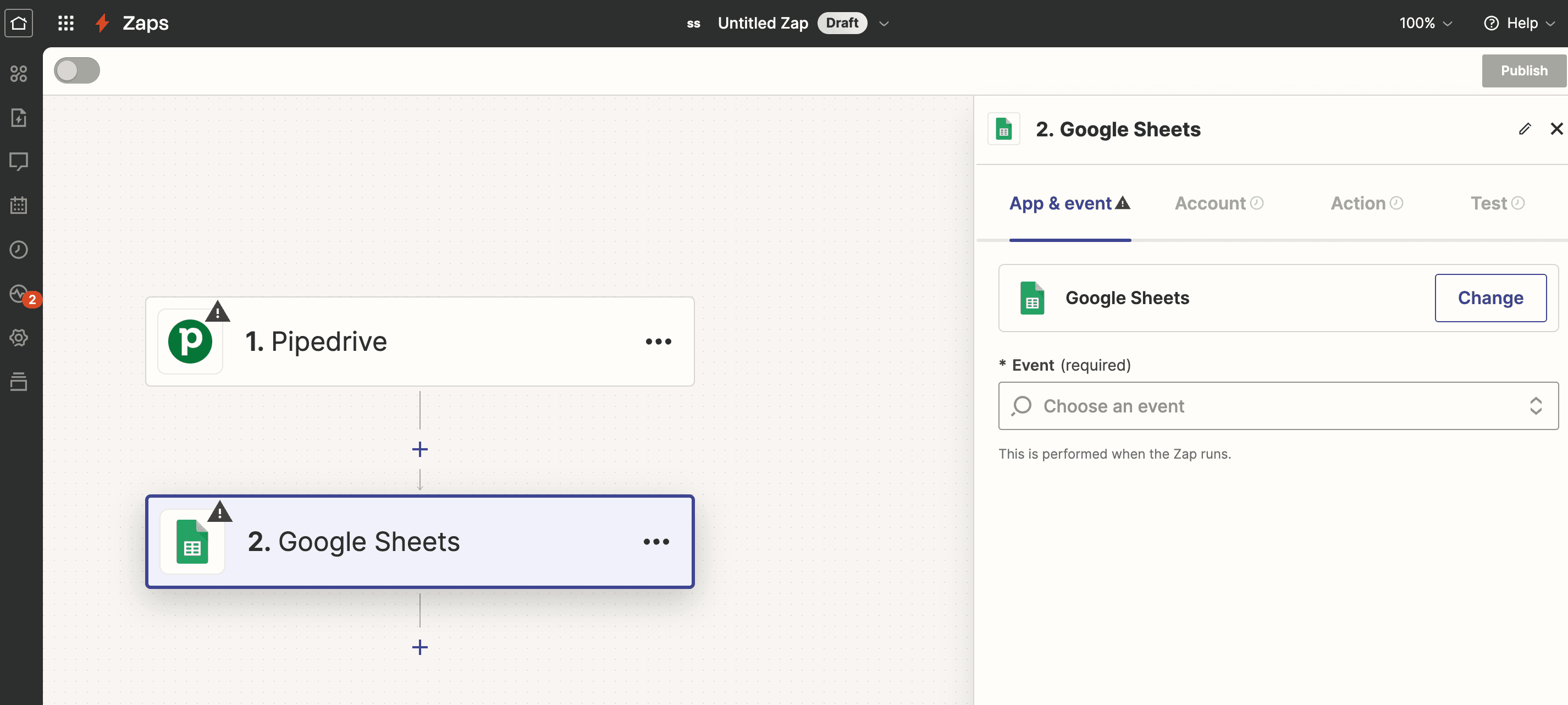
Test and turn on the Zap.
Why Choose Superjoin?
In comparison to other methods, Superjoin stands out for several reasons:
User-Friendly Interface: Designed for non-technical teams, making it accessible for marketing, sales, and business analysts.
Time Efficiency: Quick data import without the need for complex query writing.
Automated Updates: Ensures data is always up-to-date with automatic refresh capabilities.
Integrated Experience: Operates within Google Sheets, providing a seamless workflow.
For users looking for a simple, efficient, and integrated solution to connect Pipedrive with Google Sheets, Superjoin is a superior choice. It minimizes the need for technical expertise and automates the data import process, allowing you to focus on deriving insights rather than managing data imports.
Pipedrive is a powerful sales management tool designed to help sales teams manage leads, track customer interactions, and automate sales processes.
By integrating Pipedrive with Google Sheets, you can streamline your data management, create insightful reports, and make data-driven decisions with ease. This integration allows you to seamlessly manage and analyze your sales data directly in Google Sheets, leveraging the powerful features of both platforms.
This blog will compare different connection methods, highlighting why Superjoin is often the best choice for many users.
Best Ways to Connect Pipedrive to Google Sheets
Method 1: Using Superjoin
Superjoin provides the fastest and easiest way to connect Pipedrive to Google Sheets without any technical know-how or complex setup processes. Here’s how it works:
Step 1: Click Extensions from the Google Sheets menu. Select Add-ons and choose to Get Add-ons. This will bring you to the Google Workspace Marketplace.

Step 2: Look for Superjoin in the Google Marketplace pop-up window and install the app by following the prompts.

Step 3: Navigate back to the Extensions menu tab and launch Superjoin from there. You should see Superjoin running as a Google Sheets side panel on the right side of your screen.

Step 4: From Sources, select Pipedrive from the list.

Step 5: After selecting Pipedrive, authorize Superjoin to access your account by entering your API Token and Start Date.

Step 6: After authorization, you'll see a list of your Pipedrive properties in the Data Preview Window.
Choose your property and view, then click "Import" to bring the data into Google Sheets.

Step 7: Superjoin lets you refresh your imported data instantly with one click or set it to auto-refresh on a pre-set schedule. This way, you won't need to manually update your Pipedrive data in Google Sheets to reflect changes from the source.

Voila, you've successfully imported your Pipedrive data to Google Sheets using Superjoin!
It is particularly suitable for users looking for a Pipedrive to Google Sheets free tool, as Superjoin offers a free tier.
Method 2: Using Zapier
Third-party automation tools like Zapier can also be used to sync Pipedrive with Google Sheets. Zapier allows you to create Zaps (automated workflows) that can transfer data between the two services.
Steps:
Sign up for a Zapier account and create a new Zap.

Select Pipedrive as the trigger app and set up the trigger (e.g., new deal in Pipedrive).
Choose Google Sheets as the action app and configure the action (e.g., create new row in Google Sheets).

Test and turn on the Zap.
Why Choose Superjoin?
In comparison to other methods, Superjoin stands out for several reasons:
User-Friendly Interface: Designed for non-technical teams, making it accessible for marketing, sales, and business analysts.
Time Efficiency: Quick data import without the need for complex query writing.
Automated Updates: Ensures data is always up-to-date with automatic refresh capabilities.
Integrated Experience: Operates within Google Sheets, providing a seamless workflow.
For users looking for a simple, efficient, and integrated solution to connect Pipedrive with Google Sheets, Superjoin is a superior choice. It minimizes the need for technical expertise and automates the data import process, allowing you to focus on deriving insights rather than managing data imports.
FAQs
Where can I find my Pipedrive API token?
Where can I find my Pipedrive API token?
How frequently can I schedule data imports in Superjoin?
How frequently can I schedule data imports in Superjoin?
Can I customize the columns I import from Pipedrive?
Can I customize the columns I import from Pipedrive?
Automatic Data Pulls
Visual Data Preview
Set Alerts
other related blogs
Try it now

